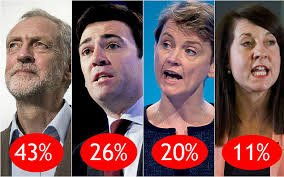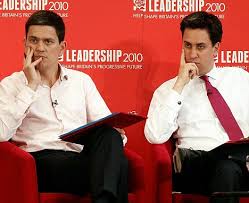 Picking the right apple from the left branch…..
Picking the right apple from the left branch…..
Apples and humankind have a long association. From Eden to Snow White it seems the apples turns up to make difficulties where there ought to be none. Most famously the golden apple of discord was made by Hephaestus for the goddess Eris. It was inscribed: for the most beautiful. She rolled it into the midst of a party hosted by Zeus to which Eris had not been invited. Eris was the don’t bring Lulu of the eternal Olympians. Hera, Athena and Aphrodite each insisted the apple was meant for her alone. They asked Zeus to decide and like men are apt to do when asked to make a difficult choice Zeus delegated the task to Paris – one of the sons of King Priam of Troy renowned for his good judgement.
 The story goes the goddesses duly disported themselves naked before the lucky Paris – a scene immortalised again and again in European art – but – none of them quite playing fair – each offered the Prince a ‘gift’ if he chose her. Paris fatally chose Aphrodite’s gift: the love of the most beautiful woman in the world. The woman in question was Helen of Sparta who was already married to Menelaus of Greece. Aphrodite got her golden apple; Paris got his Helen; the Greeks got to launch a thousand ships; and Troy got its infamous war. The Judgment of Paris therefore turned out to decide much more than who got to take home the golden apple.
The story goes the goddesses duly disported themselves naked before the lucky Paris – a scene immortalised again and again in European art – but – none of them quite playing fair – each offered the Prince a ‘gift’ if he chose her. Paris fatally chose Aphrodite’s gift: the love of the most beautiful woman in the world. The woman in question was Helen of Sparta who was already married to Menelaus of Greece. Aphrodite got her golden apple; Paris got his Helen; the Greeks got to launch a thousand ships; and Troy got its infamous war. The Judgment of Paris therefore turned out to decide much more than who got to take home the golden apple.
It is my sense of things that this Leadership in the Labour Party is similarly to be a fateful decision.
There are four chasing Labour’s golden apple – Andy Burnham; Yvette Cooper; Liz Kendall and Jeremy Corbyn. Like the goddesses before each feels he or she should win the golden prize. The PLP (Parliamentary Labour Party), having nominated the choice, like Zeus has stepped aside leaving the membership to play the judge. Like in the myth these modern gods of politics disport themselves before the naked eye of the ever watchful Media and like their forbears they also beguile us with flattering promises.
The question for us is whom to choose and why.
The Leadership – an offer of hard choices and soft options:
 The man who went into this race as favourite is Andy Burnham – former Health Secretary and Shadow Health Secretary Andy Burnham is a family man; a Catholic; born in Aintree he is a Liverpudlian and importantly he speaks with that accent – which contrasts with the metropolitan tones of all the other candidates. Burnham has gained a lot of credit personally for his support and work for the survivors of Hillsborough disaster. Like Wilson before him he holds out the promise of the authentic Englishness of the north. His most distinctive policy – the creation of an integrated NHS & Social Care Service is bold. It also has strong echoes from the proud past of Attlee. It has twice been aired as a manifesto item and twice – under Brown and then Milliband it has failed to make the final cut into the manifesto.
The man who went into this race as favourite is Andy Burnham – former Health Secretary and Shadow Health Secretary Andy Burnham is a family man; a Catholic; born in Aintree he is a Liverpudlian and importantly he speaks with that accent – which contrasts with the metropolitan tones of all the other candidates. Burnham has gained a lot of credit personally for his support and work for the survivors of Hillsborough disaster. Like Wilson before him he holds out the promise of the authentic Englishness of the north. His most distinctive policy – the creation of an integrated NHS & Social Care Service is bold. It also has strong echoes from the proud past of Attlee. It has twice been aired as a manifesto item and twice – under Brown and then Milliband it has failed to make the final cut into the manifesto.
The other experienced candidate is Yvette Cooper, briefly Shadow Foreign Secretary and then Shadow Home Secretary for most of the last Parliament, Cooper served in the Brown government as Secretary of the Treasury and Secretary of State for Work & Pensions. She too is married – to Ed Balls who lost his Leeds seat in the debacle last May. She and Ed Balls were the first married couple to serve in the same cabinet. Cooper’s campaign pitch has been about equality and she has been scathing about the way both the women candidates in the election have been treated by the Media. She suffers alike Hillary Clinton from the Media preoccupations about her husband.
Both these candidates seemed to have chosen a safety first style of campaign that was both relatively cautious and frankly deliberately dull. This turned out not to be what the party was in the mood for and consequently it has had the effect of pushing the two outsiders into the frame.
From the ‘right’ Liz Kendall has taken up what others have chosen to characterise as the Blairite torch. Kendall is a newish MP – elected in 2010 – and representing Leicester West – she was born in Hertfordshire where she grew up. In that she aptly personified the problem for Labour since the world she knows best is the one that does not know nor love the Labour Party. In the current mood for some in the party and some outside the word Blair ignites a visceral response. Kendall’s challenge to the party is that it needs to leave its comfort zone.
She suggests the party has been successfully tarred with being only concerned with appealing to a narrow band of public service workers and the working poor and has thereby permitted itself to be portrayed as supportive of a dependency state caricatured as ‘welfarism’. She argues Labour must rather look to the concerns of the middling sort who prosper in places like Herfordshire and the old Home Counties. Labour needs to win them over in order to win an election. The rhetoric has been bold but Kendall, like Cooper, has lacked a single illustrative policy specific to help her make her case – or perhaps Kendal has such specifics in mind but feels they cannot be aired until after she has the apple of leadership in her hand. Either way it has hampered her campaign and she seems to be the fourth placed at present.
Last night she did win a constituency nomination in Vauxhall. Despite the Media narrative this election may be somewhat more fluid than first impressions give.
By contrast it is the fourth and, at the outset least favoured candidate, Jeremy Corbyn, who has, if the Media are to be believed, set this election on its head. Corbyn has been MP for Islington since 1983. He entered Parliament in the same year as Tony Blair. He has been there since – a part of the old left that once looked to Tony Benn. He is a socialist is that mould and not a social democrat. He is courteous, persuasive and rather alike some aged sage of King Arthur or Tolkien’s Middle Earth he utters his inscrutable wisdom to star struck applause. Corbyn is only on the ballot by the kindness of strangers in the PLP since he could not muster the necessary 35 votes on his own account. His meetings are now packed with the relatively young and a number of those true believers long lost to Labour. He plays the old revivalist tunes with aplomb. He is rather more ambitious that the polite manner and studied eccentricity of dress and demeanour might first imply.
During one interview on Channel 4 Corbyn quite lost his temper when probed about speaking of Hamas and Hezbollah as his friends. In the main he has kept to his script of nationalisation; of attacking poverty by radical redistribution; of investing in public services (code for higher wages in the public sector); abolishing fees in Higher education; a strong line on gender and sexual equality; an equally strong empathy with immigrant community issues; a non-nuclear defence policy – with at times a slightly pacifist tinge. Though there is little new per se in any or all of these causes, Corbyn’s clarion has turned out to have a wider resonance than many wise saws saw. He has appealed to disillusioned voters who have left Labour ever since the early 1990’s and also to the younger better educated metropolitans who feel Labour has been unambitious in its recent past. The response of these groups has been genuine and genuinely unexpected. In a political world where the diet of soundbites has left voters feeling well and truly stuffed – there is something almost Franciscan in this would-be Savonarola demanding we embrace the poorer in our communities – cast off the gods of mammon and its creed of trickle down economics – and make a bonfire of vanities of consumerism. Tempting as it is to sneer – Corbyn has hit upon something genuine. Only a fool would not reflect upon that and upon what is means.
The problem here is it may mean any number of things – and none of them together may mean there’s enough to win an election on this diet of worms. Equally, it may be the public has a real appetite for something radically different.
Labour in opposition 2010-2015
 Though it has hardly been mentioned – the context for all of this soul searching is the corpse of Ed Miliband’s leadership. Ed’s leadership has not yet received its decent burial and therefore no one feels quite comfortable talking about it whilst its corpse is still in the committee room.
Though it has hardly been mentioned – the context for all of this soul searching is the corpse of Ed Miliband’s leadership. Ed’s leadership has not yet received its decent burial and therefore no one feels quite comfortable talking about it whilst its corpse is still in the committee room.
There is a proxy for this discussion in the familiar form of an older, greyer leitmotif: Tony Blair. This leadership election is alive off-stage and on; in front of camera and off-camera; everywhere in Social Media with Tony Blair. There are: Blair haters; Blair baiters; Blair fêteers. Blair – Labour’s most electorally successful leader by some considerable distance – is a divisive figure these days. He is a cult hate figure for some and an occult charm for election winning for others. His current position in Labour history is the the very same as the one suffered by other successful election winning Labour leaders – Attlee and Wilson. Important though New Labour was and important though Blair was neither of them are precisely germane to this election. For the context is only the very recent past. The electoral failure of the Milliband leadership provides both the direct context how it was we have the four candidates we have; and the wider the context about whither the party should go. Had Labour won or come close to winning Ed Milliband would still be in his place.
The cruel fact is that once Labour lost the 2011 Scottish elections by an even greater margin than it had lost them in the pit of unpopularity of 2008, Ed Miliband’s leadership was holed beneath the waterline. The party – PLP and centrally did nothing – the Unions grumbled – everyone hoped for the best – hoped the Scots would not turn to the SNP in the Westminster elections. Wishful reasons were offered time and again to suggest there was a path to victory which frankly did not challenge the party to do more than cut and paste bits and pieces of past policy on to a fresh page. The polls provided Delphic encouragement. The mayoral elections in 2012 were another warning – a London that was voting Labour in ever greater numbers re-elected Conservative Boris Johnson as its mayor. The Labour candidate Ken Livingstone was almost a throw-back to the politics of the 1980’s – the politics which also brought Jeremy Corbyn to Parliament and which corbyn still articulates. Livingstone was a talented mayor and an original thinker but by 2011 he had no new ideas – they were re-treads of very old tunes. He lost by a whisker but the fact is Labour ought to have won the mayoralty by a mile. It was another warning about the need to have the right candidate at the top if it wanted to win – and not the just the candidate of the right or the left or the centre.
This was all in sharp contrast to what Ed Milliband himself had offered in 2010. Recognising the scale of the 2010 defeat Ed suggested the terms of electoral politics had been decisively altered by the crash in 2008 and the public was ready to try something new and radical. It was time to challenge the orthodoxy of free markets and culture of free lunches for bankers that had held sway since the late 1970’s. It was time to replace Thatcherism – the capitalism of unfettered markets and trickle down economics with a new model. Many thought that this was a compelling analysis – the problem was did Miliband’s leadership ever really test the idea in more than rhetorical allusion? The answer to that question might well determine how to cast a vote – for if it is yes, then Corbyn is surely only a repetition of a failed idea; if it is no, then Corbyn may be the answer for which the party is looking.
There is, however, a further context to all this – young Ed got the top job by a squeak – his victory in the Trades Union section of the party outweighed by a fraction that of his brother in the PLP and amongst party members. Ed had squeaked out his own brother. As a result Labour lost a man of unquestionable talent and one who had the range to communicate complicated ideas in simple language without simplifying issues themselves. Labour’s losses of communicators over time has been punishing: John Smith; Donald Dewar; Mo Mowlam; and Robin Cook were taken by death but lost to party rivalries were David Miliband; James Purnell; Alasdair Darling; Gordon Brown; Jim Murphy; Douglas Alexander. Ed Balls fell in the election and now Ed Milliband is himself lost to frontline politics. The loss of forty Scottish MP’s has decapitated the Party North of the border. Labour has wasted a generation of talent.
There were plenty of chances for Labour and particularly for the PLP to seize the day and deal with the leadership problem that had existed certainly by 2012. As in the dolour days of PM Brown the PLP and the party chose to stick its collective head in the sand and hope for the best. There was talk by insiders of disaster ahead though possibly the scale of defeat came as a nasty surprise.
Those of us who has sat through the elections of 1987 and 1992 knew all too well what was in store when the LibDem constituencies fell to the Conservatives one by one last May. The scale of what was in the offing probably only really came into clear view during and after the Scots referendum campaign. The Scots referendum exposed soft underbelly of Unionist Labour loyalties in Scotland. Westminster had permitted Gordon Brown and the Scottish Labour Party their last hurrah but before they could savour saving the Union Mr Cameron on the steps of Downing St calmly cut the ground from under Labour both in Scotland and in southern England by declaring there now must be English votes for English Laws.
The Conservative party’s message was not subtle. It was carefully calibrated to be effective in those seats traditionally ‘conservative’ seats in the South and South West of England where the LibDems had been elected and re-elected since 1997. These were the very seats that had provided Thatcher with her majority in the 1979;1983;1987; and even Major in 1992. The Conservatives successfully concentrated in 2015 on regaining these seats. They were helped by the fact the LibDem brand had been destroyed by the coalition and Labour’s collapse in Scotland to an SNP to its left made an even narrow overall Conservative majority as good as a landslide.
The last Judgment?
 So by the long circuit I return to my original supposition. This choice is less about me and more about the future I would like for my great nieces and great nephew(s). It is a false choice I pose in these terms since because as a family we have prospered in our lives all of our kin will also be blest with advantages that accrue with education and a financial inheritance that can offer opportunity. I am less clear and more concerned for those born today like me or my sister or brother at somewhat of a disadvantage.
So by the long circuit I return to my original supposition. This choice is less about me and more about the future I would like for my great nieces and great nephew(s). It is a false choice I pose in these terms since because as a family we have prospered in our lives all of our kin will also be blest with advantages that accrue with education and a financial inheritance that can offer opportunity. I am less clear and more concerned for those born today like me or my sister or brother at somewhat of a disadvantage.
One of the deepest impression of my school days was made on me by Thomas Gray: Elegy written in a country churchyard which mourns the waste of talent lost by accident of birth.
Full many a gem of purest ray serene, the dark unfathom’d caves of ocean bear: Full many a flow’r is born to blush unseen, And waste its sweetness on the desert air.
The churchyard in question was Stoke Poges not far from Wexham Park hospital which in many ways epitomises the good and the troubled bad that is within the NHS. Our Public Services are part of the fabric of our civilisation – they play a part not unlike the monasteries and guilds in the Middle Ages. They stand as an inter-generational guarantee to some sort of coherent opportunity for all. The far right and far left both preach a dissolution of this old order of civic decency and to replace it with something radically different. Neither to be honest can truly describe the consequences of what they suggest. Socialism that actually changes lives accepts as part of its effective creed the inevitability of gradualism. It does so in part because it accepts the costs of revolution are usually too high and too wasteful to those who live in the injustice of the here and now. The creed of Democracy is of continuing reform because the wheel of progress is as yet too much a wheel of fortune. Despite the blandishments offered to me by Jeremy Corbyn of true change – whatever that might amount to in time – I do not think Labour can risk not winning the next election. Equally I do not think the party cannot but sit up and consider the reaction to his candidature.
Unlike Paris in his judgement I get a number of bites at my final Judgement. For the present I am honestly and totally uncertain as what to do for the best. I think we now need to hear the how candidates respond to those whom Jeremy Corbyn has engaged and even enthused. I will honestly say personally I’d like a woman to lead the party. I just think it’s time. But in the end I must try and choose the best candidate I can. I promise to make this public once I have completed my ballot in two weeks from now. It is not for me to tell others how to vote but to rather persuade them what to consider when casting their ballot. Thomas Gray casting his eyes about the graveyard put into words what is a stake in that telling phrase – their lot forbade. It must be part of our endeavour neither to shut the gates of mercy nor close the doors of opportunity on those not born to opportunity of right. It is our job to give them that chance. That is their golden apple and they deserve to get it as of right.
